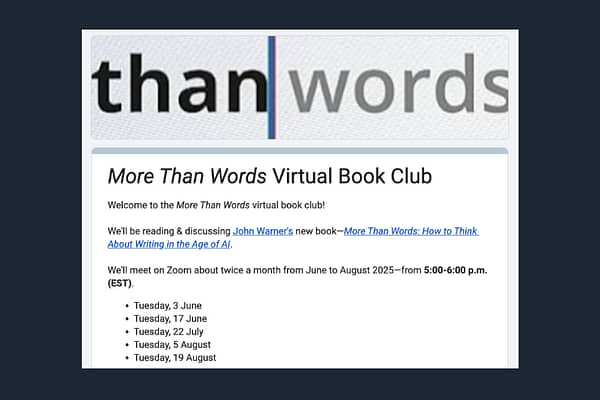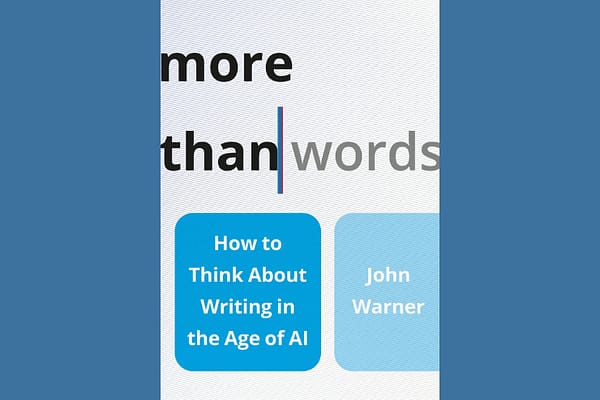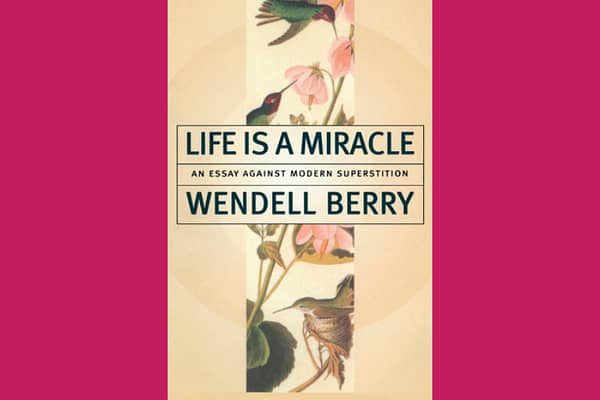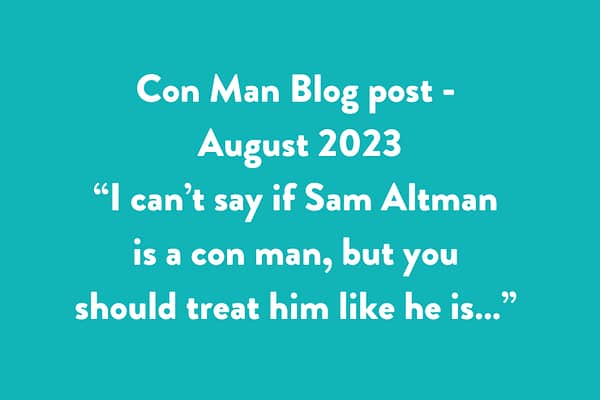Podcast (tihe_podcast):
Play in new window | Download | Transcript
Subscribe: Apple Podcasts | Spotify | RSS | How do I listen to a podcast?
John Warner shares about his latest book, More Than Words: How to Think About Writing in the Age of AI on episode 564 of the Teaching in Higher Ed podcast.
Quotes from the episode
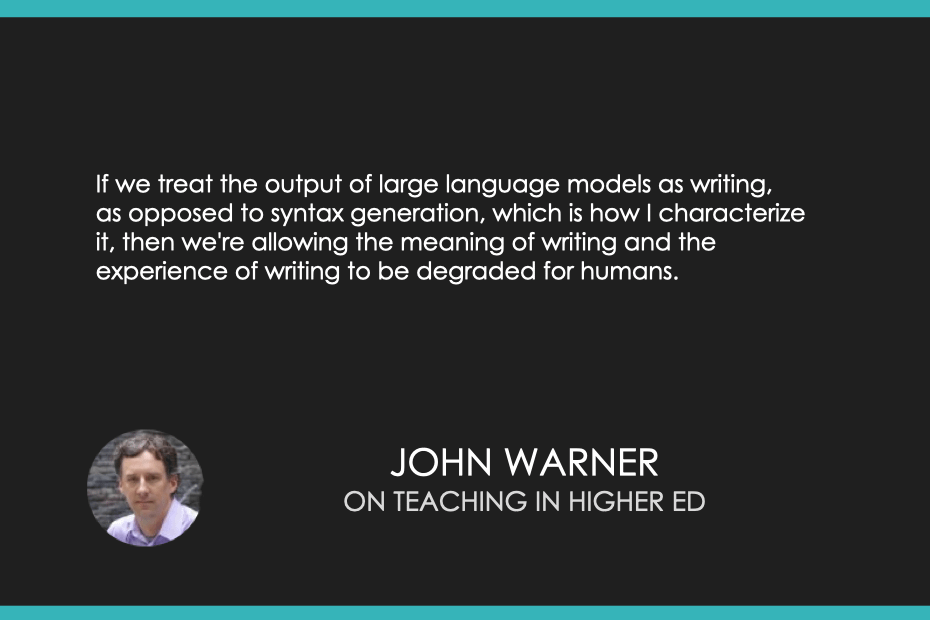
If we treat the output of large language models as writing, as opposed to syntax generation, which is how I characterize it, then we're allowing the meaning of writing and the experience of writing to be degraded for humans.
-John Warner
Clearly, this is not feedback that is unique to human beings and unique to how we read.
-John Warner
There is no pivot for humanity. We're going to be humans whether we like it or not, and we are going to live our life through a series of experiences which convey some manner of meaning to ourselves. We still have to live. We still have to have a day to day experience of the world. We still have to have access to our own minds. We still have to relate to other people. This is the stuff of being human.
-John Warner
Every human is a unique intelligence. Developing a unique intelligence is a work of teaching and learning. And honoring that is the highest calling of a teacher.
-John Warner
